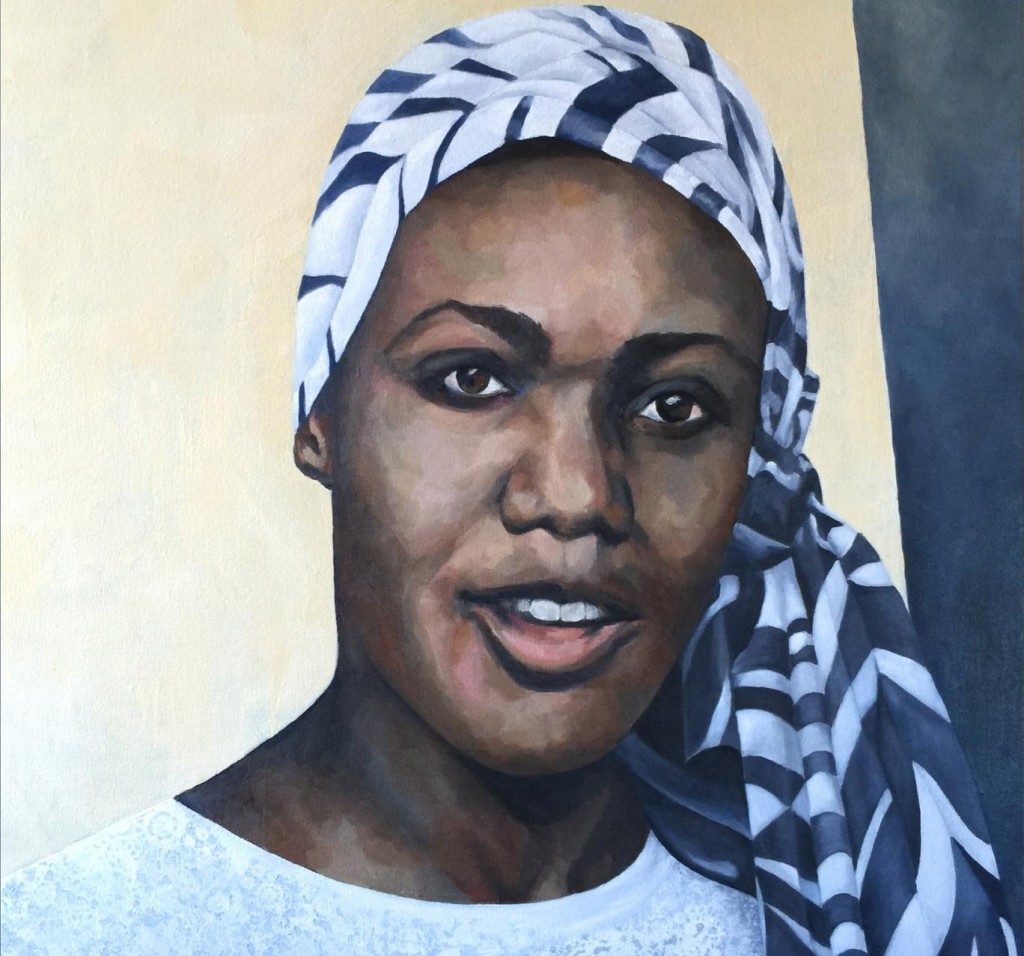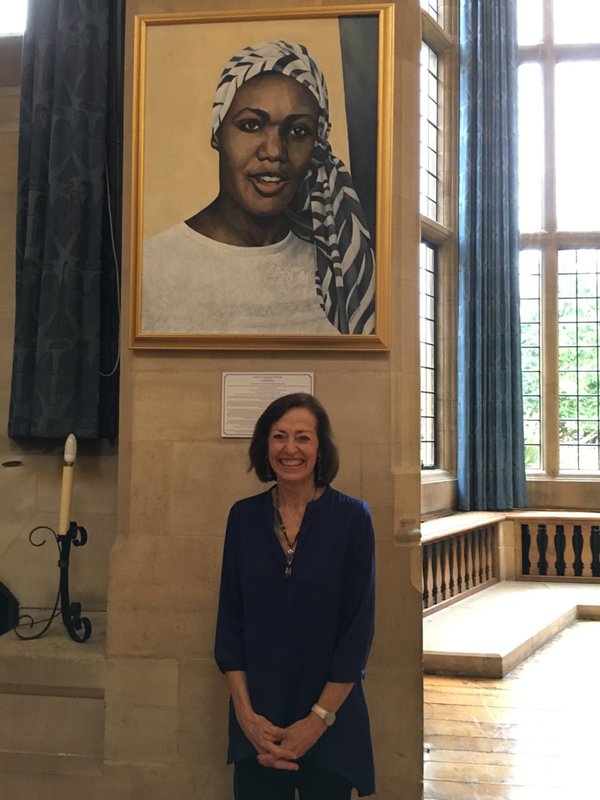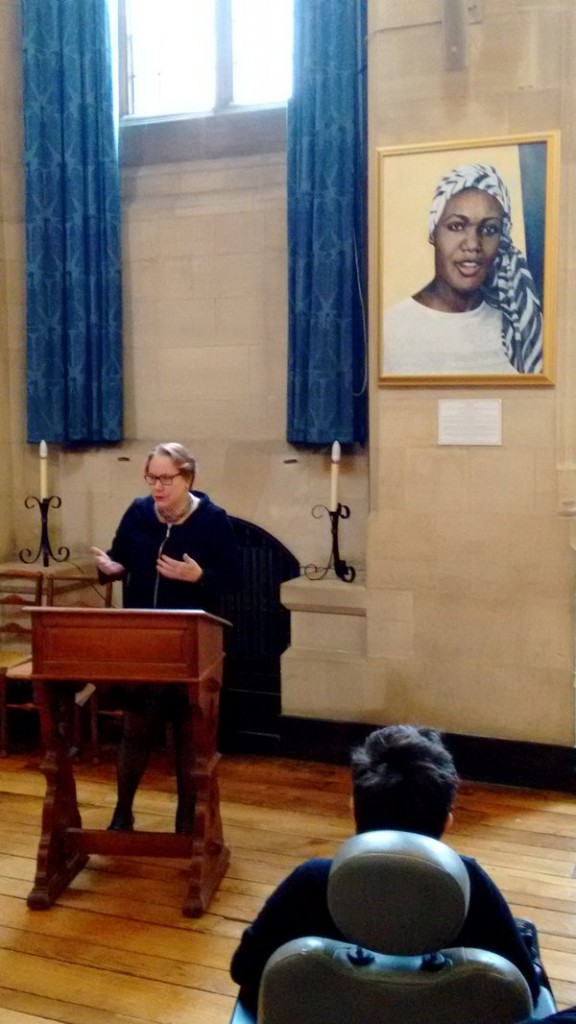On Wednesday the 9th of December, Zambian human rights activist and Somerville alumna, Lucy Banda-Sichone (PPE, 1978), became the first female Rhodes Scholar to have her portrait hung at Rhodes House. The portrait was painted by her friend and Somervillian, Dierdre Saunder (BFA Fine Art, 1978).
Her portrait will be hung among other portraits including the late Nelson Mandela and notable individuals who received the century-old scholarship. Among them, the former US president Bill Clinton.
The artist Deirdre Saunder, who was born and raised in Southern Rhodesia (now Zimbabwe), was also a Rhodes Scholar and attended Somerville to read Fine Art in 1978. She currently teaches art at the Maret School in Washington D.C. At the unveiling of the portrait, Saunder spoke of trying to capture the essence of the ‘Lucy she knew at Somerville’ – an individual who was full of determination and passion.
Artist Dierdre Saunder with the portrait. Photo by twitter user: @tonyabrahams
The portrait was jointly commissioned by former Rhodes Scholar, Kelsey Murrell and by Somerville Alumna andChair of the Rhodes Project, Dr Ann Olivarius (1978, Social Studies). Dr Olivarius was also a friend of Ms Banda-Sichoni at Somerville. At the unveiling she spoke of Banda-Sichoni’s honesty, self-sacrifice and ability to be a real advocate for change.
Lucy Banda-Sichone, who came to Somerville from Zambia to study PPE in 1978, was regarded as one of the bravest civil and human rights activists of her time. Before coming to Oxford she studied for a BA in Law at the University of Zambia. After graduating, Lucy went back to Zambia and ran for a position with the United National Independence Party (UNIP), where she was appointed to the Central Committee as Chairperson for the Women’s Affairs Sub-Committee and the UNIP’s Constitutional Review Commission. She also served as Secretary for Legal, Constitutional, and Parliamentary Affairs.
Rhodes Project Chair Ann Olivarius. Photo by the Rhodes Trust
After leaving government work, she went on to write a column for The Post, the only Zambian Newspaper that was not state-owned, in which she frequently criticized the government. Subsequently Banda-Sichone, the newspaper’s managing editor and chief editor were sued and went into hiding. The latter two gave themselves up shortly after but Lucy continued to write columns whilst in hiding.
In 1993 Lucy founded the Zambia Civic Education Association (ZCEA), a Non-Governmental Organisation whose philosophy is “to create a just world in which all persons irrespective of race, ethnicity, age, gender, religious orientation, creed or any other basis for discrimination, enjoy all fundamental rights and freedoms.” ZCEA was founded to provide civic education and legal aid and ran workshops and public meetings in rural areas.
Lucy died suddenly at the age of 44 from suspected pneumonia in 1998. Newspapers and prominent Zambians described her death as a terrible loss but, although the civil society movement tried to petition the government, she was not given a state funeral.


